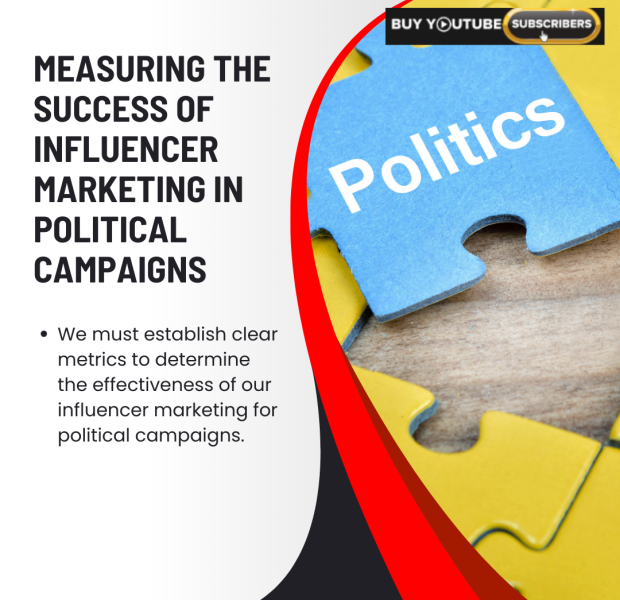Introduction to Influencer Marketing for Political Campaigns
In the modern political landscape, influencer marketing has emerged as a powerful tool for reaching voters. As social media continues to dominate our daily interactions, leveraging micro-influencer marketing for politics allows campaigns to engage with diverse audiences more effectively. This strategy enables candidates to communicate their messages in a relatable way, fostering a genuine connection with potential voters.
By integrating influencers into campaign strategies, candidates can break through the noise of traditional media and reach voters authentically. This approach enhances visibility and encourages meaningful discussions around important issues, ultimately shaping the electoral landscape.
Why do Influencers Matter in Politics?
Their credibility and established trust with followers can significantly impact a political campaign. In today’s digital age, voters often seek authentic voices over traditional advertisements. Influencer Marketing for Political Campaigns serves as a powerful tool, making influencers crucial in influencing voter perceptions and behaviors.
Moreover, influencers often have niche audiences, which allows campaigns to effectively target specific demographic groups. For instance, a well-respected environmental activist can mobilize younger voters on climate issues, while a local community leader can address grassroots concerns. This targeted approach enhances the relevance of campaign messages and fosters deeper connections with potential voters.
Additionally, influencers excel at creating engaging content that resonates with their audiences. By collaborating with influencers, political campaigns can produce relatable and shareable content—a heartfelt video, a compelling blog post, or an interactive Q&A session. This type of engagement encourages discussions and helps humanize candidates, making them more approachable and relatable.
In essence, influencers are vital in modern political campaigns. Their ability to reach and engage voters authentically can turn the tide in elections, driving higher participation and significantly shaping the political narrative.
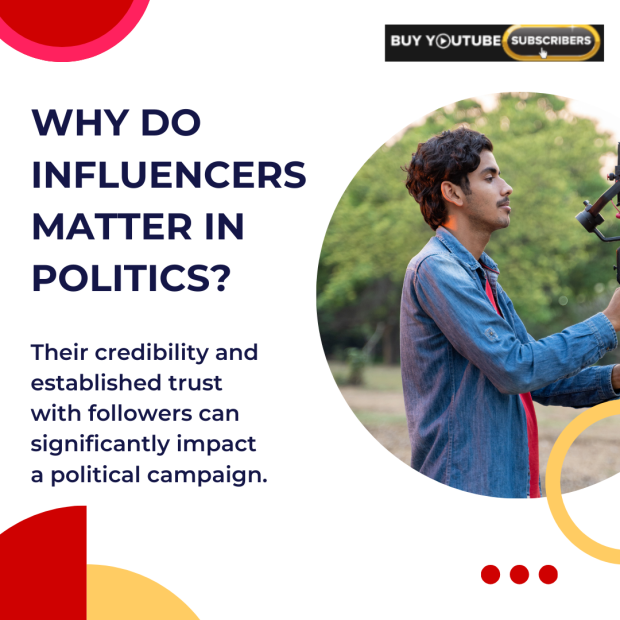

Selecting the Right Influencers for Your Political Campaign
The success of influencer marketing for political campaigns depends on selecting the appropriate influencers. We should consider factors like audience demographics, engagement rates, and alignment with campaign values. Conducting thorough research ensures we connect with influencers who resonate with our target voters.
Next, we must evaluate engagement rates. An influencer with a smaller following but high engagement often has a more loyal and involved audience compared to a larger influencer with lower interaction levels. This genuine engagement can translate into more impactful messaging, as followers are more likely to trust and act upon recommendations from influencers they actively engage with.
Additionally, alignment with campaign values is essential. We should seek influencers whose beliefs and messaging resonate with our campaign’s objectives.
Thorough research is imperative. Our company can select those who will genuinely connect with our target voters by assessing potential influencers’ past collaborations, content styles, and public perceptions. Ultimately, the right influencer partnerships can amplify our campaign’s message, foster deeper connections, and mobilize voter action effectively.
Political campaign influencer marketing strategies should focus on these factors to maximize outreach and relevance.
Targeting Specific Voter Demographics with Influencers
Influencer marketing allows us to effectively target specific voter demographics. By collaborating with influencers who have established connections with certain groups—be it young voters, minorities, or specific interest communities—we can tailor our messages to resonate deeply. This focused approach increases the likelihood of engagement and drives voter action.
For example, partnering with influencers with a strong presence among young voters enables us to address issues that matter most to this demographic, such as climate change, education, and social justice. Influencers in this space can create engaging content that speaks directly to the concerns and aspirations of younger audiences, fostering a sense of urgency and relevance.
Similarly, when reaching out to minority communities, we can work with respected influencers within those groups. Their insights and experiences help convey our campaign’s commitment to inclusivity and representation. By highlighting policies that directly impact these communities, we demonstrate that our campaign is not just a distant entity but one that understands and values their unique perspectives.
Moreover, this focused approach increases the likelihood of engagement. When voters see messages that reflect their values and concerns through trusted voices, they are more likely to interact, share, and act. Tailored content can spark conversations, mobilize support, and drive voter action.
Utilizing influencers to target specific voter demographics allows our company to create more meaningful connections with potential supporters.
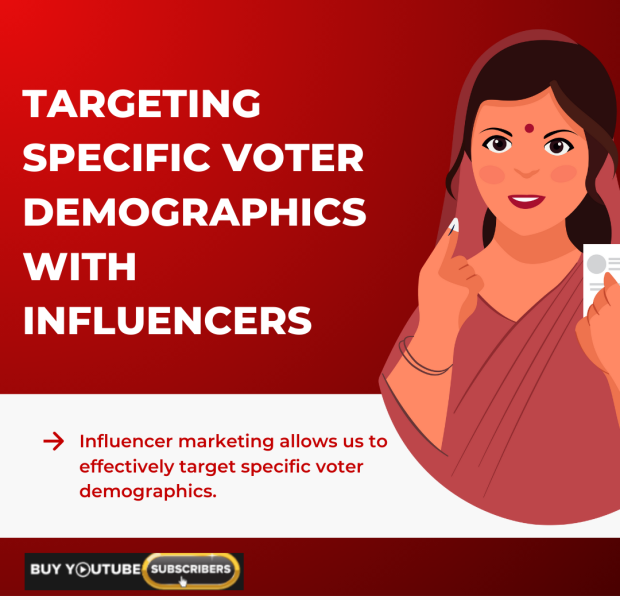
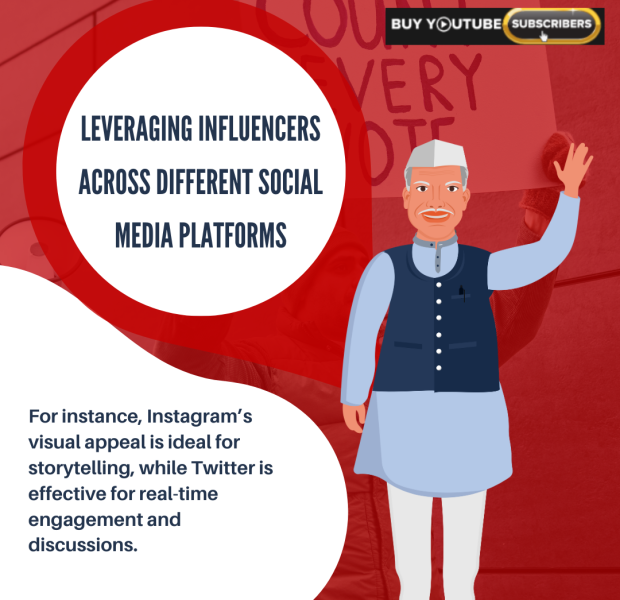
Leveraging Influencers Across Different Social Media Platforms
For instance, Instagram’s visual appeal is ideal for storytelling, while Twitter is effective for real-time engagement and discussions. Social media influencers in politics can broaden our reach and engage voters in varied ways by leveraging influencers across platforms such as Instagram, Facebook, and YouTube. Each platform serves a distinct purpose in our overall marketing strategy.
It allows influencers to participate in trending conversations, respond to voter queries, and share timely updates. This immediacy is invaluable during critical moments, such as debates or breaking news, where influencers can amplify messages and encourage followers to join the dialogue.
Platforms like Instagram offer a fresh and dynamic way to engage younger voters. Short, entertaining videos can break down complex political issues in an accessible manner, making the campaign feel relatable and relevant. Influencers can use humor and creativity to draw attention to critical messages, potentially going viral and reaching audiences far beyond their usual followers.
Influencers can utilize this platform to organize local events, share detailed information about policies, and create discussion groups, fostering a sense of community among supporters.
Influencers can create engaging videos that delve into candidates’ platforms, share personal stories, or host interviews, providing voters with valuable insights.
Types of Influencers Used in Political Campaigns
Political campaigns utilize various types of influencers, including:
1. Celebrities: Well-known figures can draw attention and create buzz around a campaign.
2. Micro-influencers: These individuals have more minor yet highly engaged audiences and can foster deeper connections.
3. Nano-influencers: In nano-influencer marketing for campaigns, these influencers with smaller audiences are highly effective in grassroots efforts.
4. Local Influencers resonate with community-specific issues, making them vital for grassroots campaigns.
5. Subject Matter Experts: Their authority on specific topics can lend credibility to campaign messages.
Creating Effective Influencer Campaign Strategies
1. Set Clear Objectives: Define what we want to achieve, whether it’s increasing awareness, driving voter registration, or mobilizing turnout.
2. Develop Engaging Content: Collaborate with influencers to create authentic and compelling content that reflects our campaign’s message.
3. Utilize Diverse Formats: Incorporate videos, live streams, and posts to engage followers across various platforms.
By implementing these strategies, we enhance the effectiveness of our influencer marketing for political campaigns.
Influencer outreach for political campaigns should include building lasting relationships with influencers, ensuring clear communication, and providing them with the necessary resources to convey our message authentically.
The Influencer Economy: How Political Narratives Are Shaped
Influencers play a pivotal role in shaping political narratives. By discussing key issues and sharing personal experiences, they humanize political messages. Our company can collaborate with influencers to highlight stories that resonate with voters, emphasizing how policies affect their daily lives.
Influencers can highlight stories that resonate with specific demographics through their authentic voices. For instance, a health advocate influencer might share personal experiences related to healthcare policies, emphasizing how these policies impact individuals and families. This storytelling approach educates followers and creates emotional connections, encouraging them to engage with the campaign more deeply.
Collaborating with influencers allows our company to tap into their unique perspectives and insights. By curating content reflecting real-life experiences and challenges everyday citizens face, we can effectively emphasize how our campaign’s policies align with voters’ needs and aspirations. This strategy fosters a sense of trust and relatability, making candidates appear more approachable and invested in their constituents’ concerns.
Moreover, influencers can address pressing issues in a way that resonates with their audiences, shaping public discourse and influencing voter perceptions. By leveraging their platforms, we can ensure that important topics—such as climate change, education reform, or social justice—are discussed and framed in a manner that aligns with our campaign values.
Influencers serve as vital allies in our efforts to shape political narratives. Their ability to connect authentically with audiences enables us to foster a more personal connection to the campaign, amplifying our message and making it more impactful in voters’ minds.
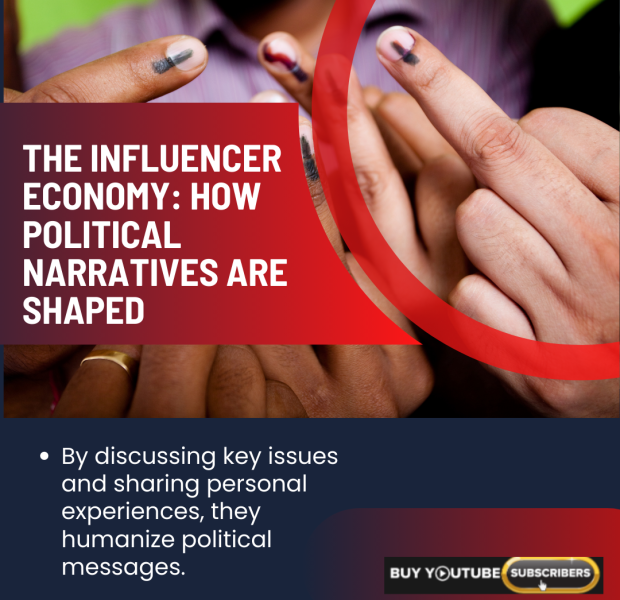
Regulations and Ethical Considerations in Political Influencer Marketing
Adhering to regulations and ethical standards is crucial as we navigate the landscape. Our company prioritizes ethical practices, ensuring that all campaigns comply with legal requirements and uphold the integrity of our political messages.
One of the primary ethical considerations is the need for influencers to disclose partnerships. This transparency helps maintain trust with their audience, ensuring followers understand when sponsored content is. The Federal Election Commission (FEC) and other regulatory bodies have guidelines that require such disclosures. By providing influencers following these regulations, our company reinforces our commitment to ethical practices, fostering a trustworthy relationship between influencers and their audiences.
Moreover, it’s essential to evaluate the content being shared. Misinformation or exaggerated claims can damage our campaign’s reputation and the broader political discourse. We must work closely with influencers to ensure that all messaging is accurate, respectful, and aligned with our campaign values. This collaborative approach helps maintain the integrity of our political messages and promotes informed discussions among voters.
Additionally, we should be mindful of the diverse backgrounds and perspectives of influencers and their audiences. Ethical influencer marketing means being inclusive and sensitive to the values and concerns of various communities. By championing diversity and representation, our campaigns can resonate more deeply and authentically with a broader range of voters.
Measuring the Success of Influencer Marketing in Political Campaigns
We must establish clear metrics to determine the effectiveness of our influencer marketing for political campaigns. Key performance indicators (KPIs) such as engagement, reach, and conversion rates will help us assess impact. Additionally, tracking sentiment analysis through social listening tools provides insights into public perception and allows us to adapt strategies as necessary.
Engagement rates measure how actively followers interact with content shared by influencers. This includes likes, comments, shares, and saves. A high engagement rate indicates that the message resonates with the audience, fostering community dialogue and interest in the campaign.
This metric helps us understand the breadth of our campaign’s visibility. By assessing reach, we can gauge whether our influencer partnerships successfully expand our audience and increase awareness of our campaign messages.
Additionally, tracking sentiment analysis through social listening tools provides insights into public perception. By analyzing comments, shares, and discussions surrounding our campaign, we can better understand how voters feel about specific issues and candidates. This information allows us to adapt our strategies as necessary, addressing concerns or amplifying positive sentiment.
